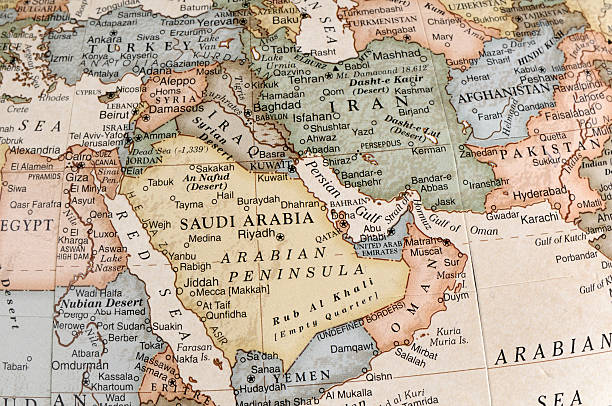US State Department’s Office of the Historian says that Secretary of State Warren Christopher “eschewed confrontation in favor of negotiation with friend and foe alike”. Indeed, during his tenure as Secretary of State, from January 1993 to January 1997, he paid 200 visits to different countries including those in which he accompanied President Clinton. A hundred of those visits were to the Middle East: 5 to Saudi Arabia, 8 to Jordan, 8 to the Palestinian National Authority, 15 to Egypt, 29 to Syria, and 34 to Israel.
Mr. Christopher’s focus on the region was of great interest to the Turkish Ministry of Foreign Affairs and we genuinely wished him every success as regional stability was in our interest also. We watched his visits to Damascus with particular attention since during those years Türkiye’s relations with Syria were most confrontational because of President Hafez al-Assad’s continuous support to the PKK despite his false denials.
Secretary Christopher’s visits to Syria, on average a visit every two months, yielded no progress. Convincing President Hafez al-Assad to change path proved mission impossible.
On March 19, 2003, the US invaded Iraq under false premises. The Bush administration’s proclaimed goal was to resolve the twin problems of terrorism and nuclear proliferation through the “democratization of the broad Middle East”. These three elements at the heart of the Bush Doctrine – conquest, democratization, and dominos – went hand in hand. One of Secretary Powell’s subordinates described the combination as “the Beautiful Vision,” a set of ideas that said, “We’ll overthrow this brutal dictator. We’ll create this provisional government of exiles. They’ll be welcomed, and we’ll leave them to their economic prosperity and representative government. All these other awful regimes in the region will fall like dominoes. The whole place becomes better for Israel. Beautiful picture!” [i]
Last week Secretary Blinken paid his fifth visit to the Middle East after the Hamas onslaught of October 7. Since continuing US attacks on Iranian proxies in Iraq drew a sharp reaction from Baghdad, he chose not to go there. Last Saturday, Iraqi foreign minister, Dr. Fuad Hussein, told the BBC that the tension nowadays between Iran and the United States is very high. “I hope both sides will stop their attacks. They are not going to solve their problem on Iraqi soil,” he said. “We paid a very big price.”
Eight years after the invasion of Iraq came the “Arab Spring”. For Washington and its European allies this was a welcome opportunity for regime change projects. Today, Libya and Syria are in chaos. Were any of these interventions about bringing democracy to the broad Middle East? Hardly. They were more about striking off adversaries from the regional equilibrium. Iraq and Syria were not democracies, but they constituted the heartland of the Arab world. No more.
What reminded me of Secretary Christopher’s visits to Damascus was Secretary Blinken’s fifth trip to the region. The former was faced with a difficult interlocutor and foe in Damascus, Hafez al-Assad. In Tel Aviv, the latter was faced with an equally difficult interlocutor, Benjamin Netanyahu. The difference is that he happens to be the prime minister of Washington’s number one ally. The war in Gaza has become a major headache for the Biden administration at a time when all that US politics can offer the American people appears to be a Biden-Trump rematch, probably leaving many wondering who would be the vice-presidential candidates.
Despite some optimistic initial assessments about the “generally positive response from Hamas”, everybody involved in the negotiation process in Qatar must have known that Hamas’s proposals had zero chance of being accepted by the Israeli government. Thus, Mr. Blinken headed back to Washington empty-handed.
Following his talks in Tel Aviv Mr. Blinken held a news conference. Two points he mentioned are worthy of attention.
Firstly, he said that the daily toll that Israeli military operations continue to take on innocent civilians remains “too high”. Too high? Does this mean that there is a reasonable, acceptable daily toll? No, because the loss of civilian lives constitutes a violation of international humanitarian law and the so-called “rules-based international order” ardently advocated by the West.
Secondly, and most importantly, he said, “Israelis were dehumanized in the most horrific way on October 7th. The hostages have been dehumanized every day since. But that cannot be a license to dehumanize others.”
Indeed, that is the question on the minds of not only Israel’s adversaries but also Israel’s friends. Despite the October 7 onslaught, how can a people that has experienced endless, unimaginable, unspeakable horrors react with such vengeance and rain bombs on 2.3 million poor, needy, hungry Gazans? A recent New York Times investigation has revealed videos of Israeli soldiers mocking Palestinians and celebrating the demolition of their homes and neighborhoods in Gaza. These create a huge image problem for Israel, one to last.
Since I have mentioned Secretary Warren Christopher’s 29 visits to Damascus, a word on relations between Türkiye and Syria: President Hafez al-Assad had chosen to be Türkiye’s number one regional adversary. He died on June 10, 2000. In a remarkable show of good-neighborly intentions, President Ahmet Necdet Sezer traveled to Damascus to attend his funeral where he met with his son and successor, Bashar al-Assad. This marked the turning of the page. Relations flourished.
In December 2009, the communique issued at the end of the Damascus meeting of the “Turkish-Syrian High-Level Strategic Cooperation Council” referred to a “strategic partnership”, at the time a fashionable label for Türkiye’s friendly relationships. It mentioned common threats and challenges confronting the two countries.
A year later, Foreign Minister Davutoglu, in remarks to the press with his Syrian counterpart in Latakia, underlined that the exemplary relations between Syria and Türkiye were serving as a model for regional partnerships and that the two countries were aiming at total economic integration with neighbors.
Only two years later, it dawned upon Turkey’s ruling Justice and Development Party (JDP) government that Assad was a dictator. Thus, aspiring to bring the Muslim Brotherhood to power in Damascus the government took a leading role in the regime change project in Syria. Ankara joined hands with the US, other Western countries, and Gulf states to oust President Assad from power. Forgotten were the common threats and total economic integration. Eventually, however, support for the Brotherhood undermined relations with Egypt and the Gulf states.
Thus, the AKP government created a huge foreign and security policy problem for Türkiye, and how it managed to do that is a lesson we Turks must never forget. So, I will continue to keep mentioning it.
Does Ankara have today a relationship with any other country that might be called a “strategic partnership”? No, none whatsoever.
———————————————————————————–
[i] John J. Mearsheimer, Sebastian Rosato, How States Think, Yale University Press, 2023, p.208.










